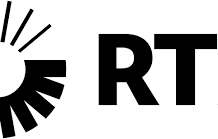Abe Dane and David Durand first worked together at Dynamic Diagrams several years ago, putting print content on the Web for clients such as academic presses and the World Bank, creating cutting-edge tools with built-in searching, e-commerce and tight access controls.
The applications for such tools, the two believed, could be endless, but it was expensive and impractical to keep custom-building them from scratch. So in March 2006, working out of Durand’s house, they launched Tizra to make such tools accessible and affordable to all.
Three years later, with proven results with their first big clients and a fast-changing marketplace, Dane and Durand are ready to take Tizra to the next level.
PBN: Who has been your target clientele, and where are you going now?
DANE: We started out selling it to the kinds of publishers that we knew, like the MIT Press, and the New York Botanical Garden Press, and we’re about to go live with the Indiana University Press. That’s where the concept was validated, and one of the things we’re now focusing on is taking these capabilities into a much broader market. The basic functions of publishing are things that take place almost everywhere. Putting content online and making it accessible to the right people and easily usable is tremendously valuable to any organization.
PBN: You received some good media attention last month from your demo with the federal stimulus bill. How did that come about?
DANE: It was something like a 600-page PDF file on a government server somewhere, and technically, you could get to it, but if you wanted to search it and access specific pages and be able to link to specific pages and not have it take forever to download … you weren’t able to use it that way. One weekend I got this idea from listening to NPR: People are really interested in looking at the stimulus bill. … So I downloaded the PDF file, posted it in our system, and very quickly had a version that was easier to search, you could link to specific pages, highlight specific words, so it made the document much more useful.
DANE: It’s publishing in one sense, but also information services. It’s making content findable, enabling people to find exactly the piece of content for their purpose, and for organizations to be able to restrict access in ways that provide them with security but don’t make the content difficult to use. … When people want to share information, they create documents … if there’s a reference manual for a company, that’s something they may want to make available to specific people.
PBN: One of the strengths of your product is that it’s very customizable but also very easy to use.
DURAND: It came out of those years of doing the custom sites. We’d replicate a certain set of problems … and we were always integrating a lot of pieces of software. We always had too many moving parts, and we saw that people couldn’t control everything from one place. … And we found publishers were spending a lot of time writing software that was, in essence, what the other publishers were doing, but the World Bank was organized by regions and a little bit by subject areas … Oxford was organized by scholarly field … so it was that kind of perspective. And the timing was very good because the methodology for developing Web applications was getting [much better].
Now we’re working with Dynamic Diagrams, and with some Boston Web developers, and it’s very easy for them to learn the tools.
DURAND: One of the things we have been shifting a bit is that we wanted to hit smaller publishers first, and now we’re going for some of the bigger guys. So we’re going to be adding some other options, like buy a Tizra box and install it in your world, behind your firewall. For government and defense guys, that would be critical. And with regard to things like Kindle, they’re definitely active competitors, but they’re trying to monopolize a channel, and that gives us some edge with the nervousness that people have about doing stuff with a single channel.
PBN: How big a market do you see for books versus documents?
DURAND: I think the market for both is going to be substantial; the book market is just taking a longer time because of the pace at which publishers move. The documents thing has been a fairly new part of our strategy … and we had this concern about serving two masters who wanted different things, but it’s astonishing how the features line up.
PBN: How is the economy treating you?
DURAND: The economy has hit everyone a bit. We were fundraising when the stock market crashed, with a significant interest in the angel community, and they all watched their net worth decline by half. … On the other hand, we think our value proposition is great for this economy.
PBN: Are you making money yet?
DURAND: We haven’t crossed break-even yet – hopefully soon. There’s certainly really interesting stuff in the pipeline, and we think all of the markets that matter for us are loosening up again, and we’re starting to see some really good prospects. •












